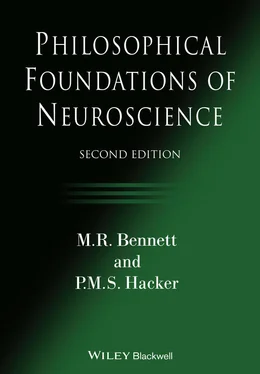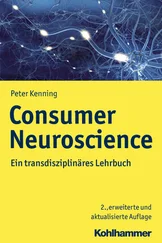Neither the causal agency of the brain nor the causal agency of the mind explains intentional action
Similarly, if we are puzzled by someone’s actions, if we wish to know why A signed a cheque for £200, no answer in terms of brain functions is likely to satisfy us. We want to know whether A was discharging a debt, making a purchase, donating money to charity or betting on a horse – and once we know which of these is the case, we may also want to know what A’s reasons were. A description of neural events in A’s brain could not possibly explain to us what we want to have explained. If we wish to know why A caught the 8.15 a.m. to Paris, a description of neural events cannot in principle satisfy our need for an explanation. But the answer that he had a committee meeting there at 2.00 p.m. that was to decide upon such-and-such a project for which A is responsible may give quietus to our curiosity. If A has murdered B, we may wish to know why. We may be given a reason, and still remain dissatisfied, wishing to understand more – but the ‘more’ we wish to understand is most probably A’s motive, not what neural events occurred at the time of the killing. We want to know whether he killed B out of revenge or out of jealousy, for example, and that requires a quite different narrative from anything that neuroscientific investigation could produce. Explanation of action by redescription, by citing agential reasons, or by specifying the agent’s motives (and there are many other forms of explanation of related kinds) are not replaceable, even in principle, by explanations in terms of neural events in the brain. This is not an empirical matter at all, but a logical or conceptual one. The type of explanation is categorially different, and explanations in terms of agential reasons and motives, goals and purposes, are not reducible to explanations of muscular contractions produced as a consequence of neural events (see chapter 16). But equally, such explanations are not couched in terms of the activities of the mind, conceived as an independent substance with causal powers of its own. In this sense, Penfield’s dilemma is a bogus one. He was perfectly right to think that one cannot account for human behaviour and experience in terms of the brain alone, but wrong to suppose that the idea that one might be able to do so is an intelligible empirical hypothesis as opposed to a conceptual confusion. He was also wrong to suppose that the alternative is accounting for human behaviour and experience in terms of the causal agency of the mind, and wrong again in thinking that that too is an empirical hypothesis. There is no need whatsoever to impale oneself on either of the horns of Penfield’s dilemma.
The hypothesis that mind–brain interaction can explain human behaviour is logically incoherent
Once these presuppositions are jettisoned, it becomes easier to see why the explanation of human behaviour in terms of the interaction of the mind (conceived as an independent substance) and the brain is misconceived. It is not a false empirical hypothesis, but a conceptual confusion. For inasmuch as the mind is not a substance, indeed not an entity of any kind, it is not logically possible for the mind to function as a causal agent that brings about changes by acting on the brain. This is not an empirical discovery, but a conceptual clarification. ( But it is equally mistaken to suppose that substituting the brain for the Cartesian mind is any less confused. That too is not an empirical hypothesis, but a conceptual muddle, which likewise stands in need of conceptual clarification.)
Neither epileptic automatism nor electrode stimulation of the brain support dualism
Consequently, Penfield was mistaken to think that what so impressed him – namely, the phenomena of epileptic automatism and the various facts that characterize electrode stimulation of the brain – constitute empirical support for a dualist hypothesis. Epileptic automatism does not show that the mind has become disconnected from the ‘highest brain mechanism’ to which it is normally connected, and by which it is supplied with energy of an as yet unknown form. 26What it shows is that during an epileptic seizure, as a consequence of the abnormal excitation of parts of the cortex, the person is temporarily deprived of some of his normal powers (including memory, the ability to make decisions, emotional sensitivity and a sense of humour), while other powers, in particular those for routine actions, are retained. The phenomena are indeed striking, but they amount to a dissociation of powers that are normally associated, not to a disconnection of substances that are normally connected. They do not show that the brain is a computer or that the mind is its programmer. The brain is no more a computer than it is a central telephone exchange (the previously favoured analogy), and the mind is no more a computer programmer than it is a telephonist. It is perfectly true that the ability to continue routine tasks unreflectively is useful (and the expression ‘short-term programming’ is an apt metaphor here). It is also true that the purposes pursued by someone are not the purposes of his brain. But it does not follow from this that they are the purposes of his mind. They are the purposes of the human being – and they are to be understood in terms of facts about human life, social forms of life, antecedent events, current circumstances, agential beliefs and values and so forth, not in terms of neural events and mechanisms. But it is, of course, true that, but for the normal functioning of the brain, a human being would not have, and would not be able to pursue, the normal kinds of purposes that we do pursue.
The various phenomena that characterize electrode stimulation of the brain are similarly misconstrued by Penfield. The case of interference with the ‘speech cortex’ does not show that there is any such thing as a ‘concept mechanism’ in the brain that stores non-verbal concepts that can be selected by the mind and then presented to the speech mechanism to be matched to the word that represents the concept. That is picturesque mythology, not an empirical theory. Words are not names of concepts, and do not stand for concepts, but rather express them. Concepts are abstractions from the use of words. The concept of a cat is what is common to the use of ‘cat’, ‘chat’, ‘Katze’, etc. The common features of the use of these words is not something that can be stored in the brain or anywhere else independently of a word (or symbol) that expresses the concept. The patient whom Penfield describes could not think of the word ‘butterfly’ with which to identify the object in the picture presented to him. He knew that the object belonged to a class which resembles a different class of insects (viz. moths), and tried, equally unsuccessfully, to think of the word for members of the second class. This temporary inability is incorrectly described as knowing the concept but being unable to remember the word for it. The supposition that the mind might be presented with non-verbal concepts from which to choose presupposes that there is some way of identifying non-verbal concepts and distinguishing one from the other independently of any words or symbols that express them. But that makes no sense (see §§15.1–15.2).
It is certainly interesting that Penfield found that electrode stimulation could not induce either belief or decision. But this does not show that believing and deciding are actions of the mind, any more than it shows that they are not actions of the brain. It is true that they are not actions of the brain – but that is not an empirical fact that might be shown to be the case by an experiment. Rather, there is no such thing as the brain’s believing or deciding (any more than there is such a thing as checkmate in draughts). But it is also true that they are not actions of the mind either. My mind does not believe or disbelieve anything – I do (although, to be sure, that is no action). Nor does it decide – it is human beings that decide and act on their decisions, not minds.
Читать дальше












